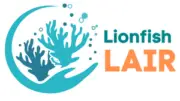The underwater world has birthed some of the most unusual and fascinating relationships between different creatures, with many partnerships forming that you would have never expected!
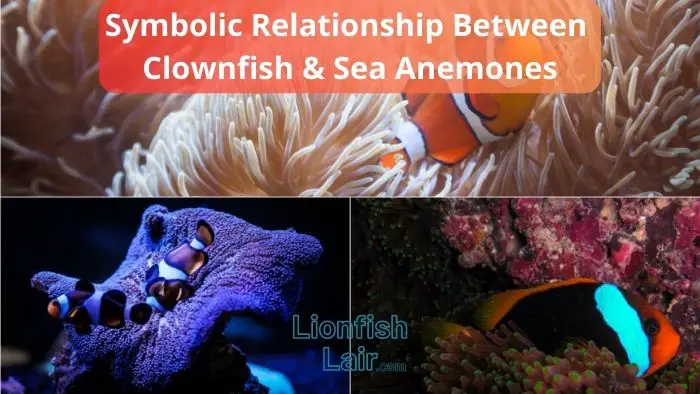
Typically, these symbolic relationships are beneficial to both parties, where one may offer protection in return for food or perhaps a deep clean. One of the most well-known and publicized symbolic relationships is that of the clownfish and sea anemone.
In this case, we will be diving into the well-known yet still surprising relationship between the clownfish and sea anemone. As someone interested in the fishkeeping hobby, you may be aware of their relationship but not completely familiar with the tactics both anemones and clownfish use to survive and thrive.
Having the knowledge of this symbolic relationship will not only benefit you as a hobbyist, but it will also provide you with more of an understanding of how the incredible underwater ecosystem operates.
What is the Symbolic Relationship Between Clownfish and Sea Anemones?
Let's begin with sea anemones - these beautiful plant-looking creatures are predatory marine invertebrates that are closely related to jellyfish and corals. Anemones usually stick to a hard surface, normally a large rock face or something similar.
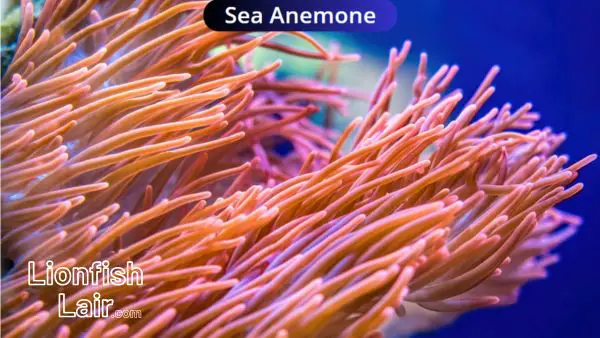
They will remain stuck on this surface for their lives, capturing any small fish and unlucky invertebrates that wind up being stung by their venomous tentacles. Once stung and paralyzed, the anemone will proceed to feed slowly.
Clownfish are one of, if not the most popular fish species in the hobby, with a lot of credit going to the popular film series "Finding Nemo". As somebody with an interest in fishkeeping, you probably know all about them, but if not, take a look at our clownfish care and setup guide to see how you can take care of your very own.
Now, if you do know clownfish, you may know that they are one of the only fish species that can survive the sting of a sea anemone - being able to tolerate the sting surprisingly well, which helped form this relationship. Their immunity derives from a protective layer of mucus that covers their bodies, providing them with a layer of protection.
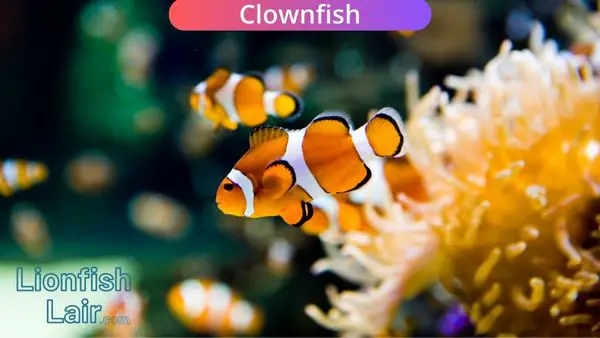
So, with this knowledge, clownfish have been using the protection sea anemones offer as their homes for as long as they have been studied. In return, the clownfish will lure other fish to the anemone for them to be stung and eaten whilst also cleaning them and removing harmful parasites from their anemone.
This relationship is known as "mutualism" due to it benefiting both parties, with the anemones getting easy meals and regular cleans and the clownfish being provided with a safe home.
How do Anemones Benefit from Clownfish?
Anemones benefit tremendously from clownfish in a few different ways - not only do they remove parasites and harmful bacteria from the anemones, but they will lure other fish to the anemone, providing it with food, and lastly, they chase away harmful fish that feed on anemones, such as butterflyfish.
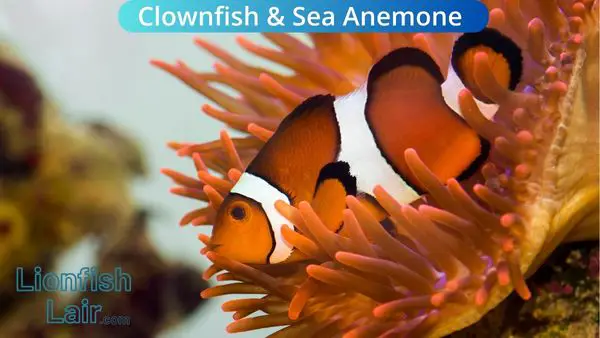
How do Clownfish Benefit from Anemones?
Clownfish will be protected and provided a safe home by the anemones, which is truly priceless when you are a relatively small species of clownfish in a massive open ocean with tons of natural predators! Due to this, they can raise their fry with more ease than other types of fish too, as well as keep their eggs safe and away from opportunistic, hungry fish.
Why do Sea Anemones not Sting Clownfish?
It is not that sea anemones do not “sting” clownfish necessarily, it is more because clownfish are immune to the sting of anemones thanks to a protective layer of mucus that acts as a coat for clownfish.
Depending upon the clownfish species, studies have shown that this protection can be innate, acquired at a later point, or both! The mucus that clownfish produce is dissimilar to pretty much any other fish, making them and this symbolic relationship all the more unique.
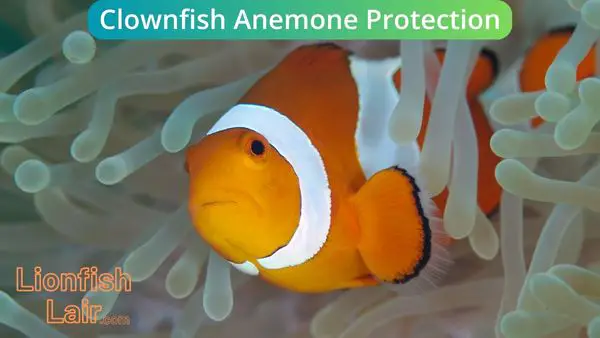
Clownfish and Anemones in an Aquarium - Do Clownfish Need Anemones to Survive?
Despite the unique and symbolic relationship between clownfish and sea anemones in the wild, clownfish do not need anemones to survive, especially in an aquarium environment.
Will the inclusion of a sea anemone in your clownfish tank make them happy? Sure, anemones are brilliant clownfish tank mates, but it is not completely necessary and can sometimes be a hindrance due to how difficult anemones are to keep.
Here is a short, video summary created by myself to help you guys understand the relationship between these two creatures more, and whether or not they actually need each other:
Will Anemones do well in Aquariums?
Anemones typically do not do well in home aquariums - they require very specific tank conditions, which include lighting, water flow, temperature, and oxygen levels, in order to simply survive. Additionally, anemones will require you to change the water in your tank far more frequently than with a fish-only tank.
Whereas clownfish are much hardier, being able to survive and thrive in variable conditions. Clownfish adapt well to home aquariums, as well as get along well with a whole host of other fish, whereas anemones simply do not.
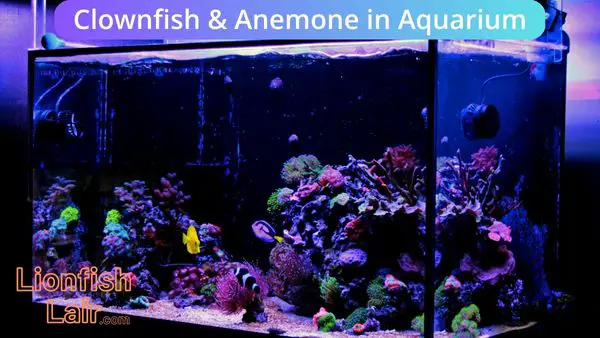
You hear a lot from ambitious beginner hobbyists that their anemones die very quickly, and, unfortunately, this seems to be the reality for most inexperienced fishkeepers trying to keep sea anemones. Also, just like in the wild, anemones will feed on other fish, which can be extremely problematic.
Moreover, anemones are known to move around in fish tanks, causing a path of destruction on the way, so make sure to watch out for that if you decide to introduce one.
Clownfish and Anemones - Final Thoughts
Hopefully, you have learned loads more information about the incredible symbolic relationship shared between clownfish and sea anemones in the wild, and also understand that despite this relationship being mutually beneficial and idyllic, it is not necessary to keep them both in an aquarium together, especially if you are not particularly experienced in keeping saltwater fish or corals.
Clownfish will thrive in an aquarium environment with or without sea anemones, so our advice is to measure whether or not you are ready to take on the rather difficult challenge of owning a sea anemone, and if you are, then absolutely go for it.
One thing you can be sure of is that your Clownfish does not need an anemone to survive!
